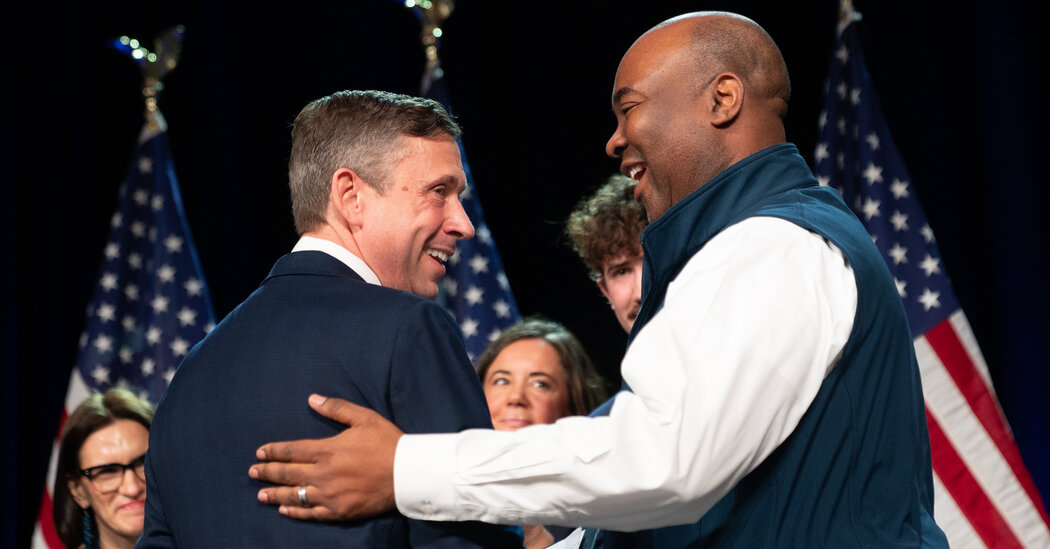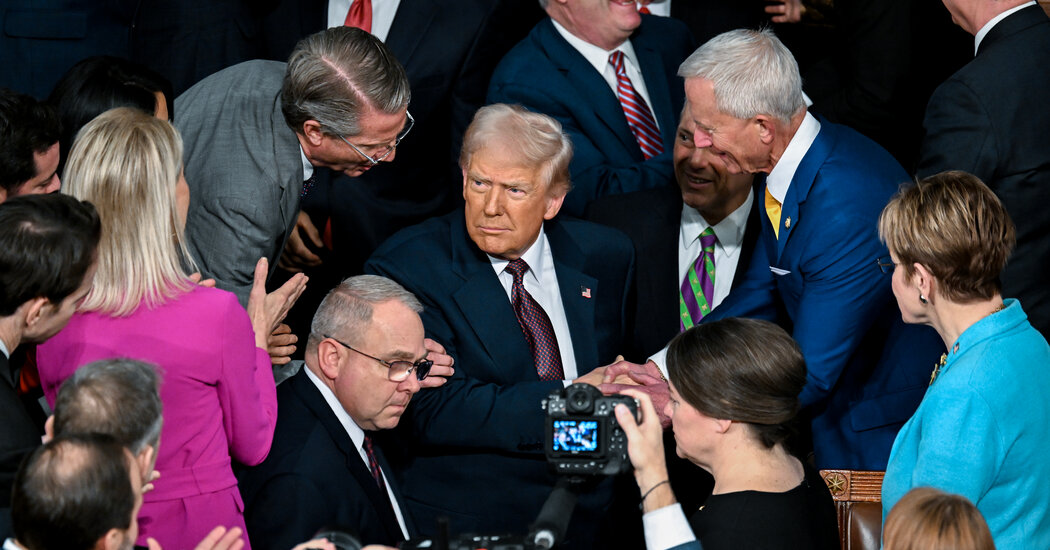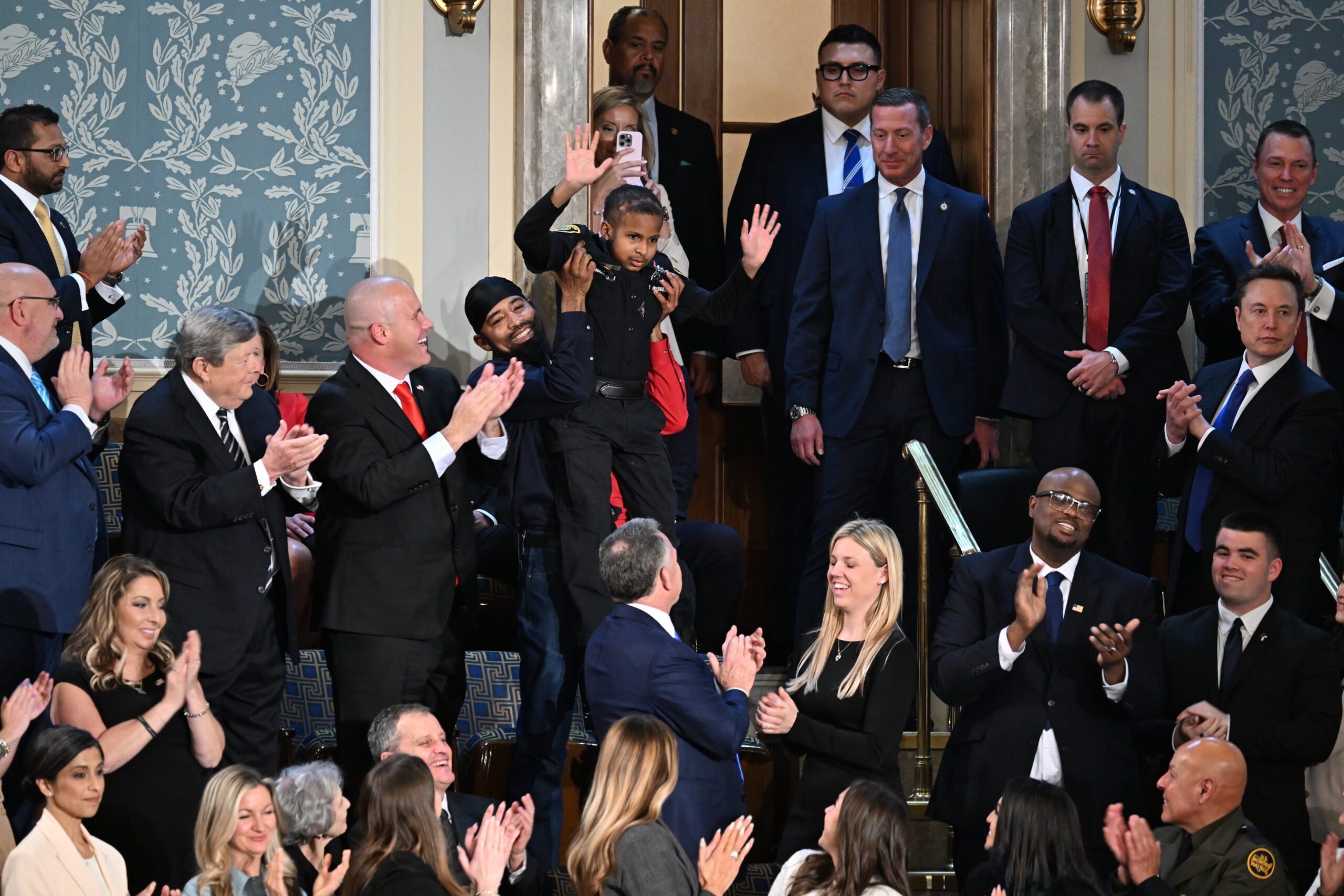## Level Up Your Political Awareness: How Trump’s Tariffs Are Hitting Small Businesses Harder Than a Boss Battle
Forget virtual economies, let’s talk about the real deal.
The ongoing trade war between the US and China, fueled by President Trump’s tariffs, is wreaking havoc on the real world, and small businesses are feeling the sting like a relentless boss fight. The New York Times reports that Democrats are stepping up to the plate, focusing their attacks on the economic damage these tariffs are causing to the very backbone of the American economy.

Think of your favorite indie game developer, struggling to source components, or that local comic book store struggling to keep its shelves stocked. These are the real victims of Trump’s trade war, and the stakes are higher than any in-game currency.

Economic Repercussions
Market Volatility

The imposition of tariffs has sent ripples through global markets, leading to increased volatility. When a country imposes tariffs, it effectively raises the price of imported goods. This can lead to a decrease in demand for those goods, as consumers and businesses may choose to purchase domestically produced alternatives or forgo the purchase altogether. This decreased demand can put downward pressure on the prices of the affected goods, potentially leading to a decline in the stock prices of companies that rely on the import of those goods or whose sales are impacted by the increased prices.
A prime example is the recent market turmoil following President Trump’s imposition of tariffs on imports from Canada, Mexico, and China. The Dow Jones Industrial Average, a widely watched stock market index, experienced a significant decline in the days following the announcement. This volatility highlights the interconnectedness of global markets and the potential for even seemingly isolated trade disputes to have widespread economic consequences.
Retaliatory Measures
The imposition of tariffs often triggers retaliatory measures from other countries. When a country imposes tariffs on another country’s goods, that country may respond by imposing its own tariffs on the first country’s goods. This can lead to a trade war, which is a situation in which two or more countries engage in a back-and-forth exchange of tariffs. Trade wars can have a detrimental impact on the economies of all countries involved.
For example, China has responded to U.S. tariffs with its own tariffs on U.S. goods, such as soybeans and automobiles. These retaliatory measures have hurt American farmers and manufacturers, who have seen their exports to China decline. The escalating trade war between the United States and China has raised concerns about a global economic slowdown, as both countries are major players in the world economy.
Political Implications
Domestic Divide
Trump’s trade policies have exacerbated existing political divisions within the United States. Supporters of the tariffs argue that they are necessary to protect American jobs and industries from unfair competition. They contend that countries like China have been engaging in unfair trade practices, such as dumping products at below-market prices and subsidizing their industries. Opponents of the tariffs argue that they are harmful to the American economy, as they raise the prices of goods for consumers and businesses and lead to retaliation from other countries.
This divide is reflected in the political debate surrounding the tariffs. Democrats have largely opposed the tariffs, arguing that they are hurting American workers and businesses. Republicans, on the other hand, have been more supportive of the tariffs, arguing that they are necessary to protect American interests.
International Relations
Trump’s trade policies have also strained relations with other countries. The United States has imposed tariffs on goods from a number of countries, including Canada, Mexico, China, and the European Union. These tariffs have led to retaliatory measures from some of these countries, which have imposed their own tariffs on U.S. goods. This has created a climate of tension and uncertainty in the global trading system.
The use of tariffs as a primary tool of foreign policy has also raised concerns about the potential for a trade war. Trade wars can have devastating consequences for the global economy, as they can lead to a decline in trade, investment, and economic growth.
Conclusion
The New York Times paints a stark picture of the economic fallout from Trump’s tariffs, focusing on the struggles of small businesses caught in the crossfire. While the administration touts job creation and economic growth, the reality on the ground is far more complex. Businesses are facing increased costs, squeezed profit margins, and a shrinking customer base. This isn’t just about abstract economic indicators; it’s about real people losing jobs, livelihoods, and their ability to contribute to the American economy.
The article highlights a crucial point: the impact of tariffs isn’t evenly distributed. While large corporations may have the resources to absorb the costs, small businesses often lack the cushion, making them particularly vulnerable. This raises serious concerns about the long-term health of the American economy, which relies heavily on small businesses for innovation, job creation, and community vitality. Will these businesses survive the pressure? Or will the American dream itself become a casualty of trade wars?
The future of our economy, and the well-being of countless individuals, hinges on finding a path forward that prioritizes sustainable growth and shared prosperity. The time for empty rhetoric is over; we need bold solutions that address the real-world consequences of protectionist policies. The choice is clear: will we build a stronger, more equitable economy, or will we allow the economic engine of America to sputter and stall?